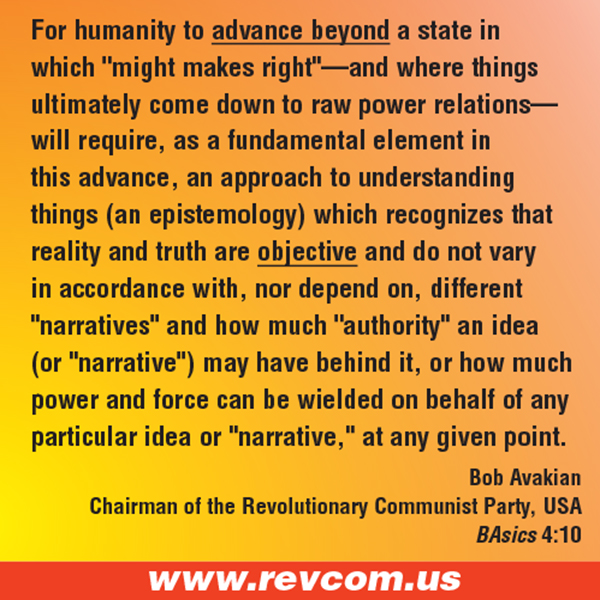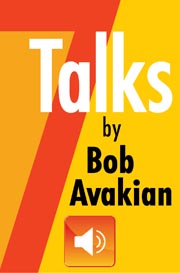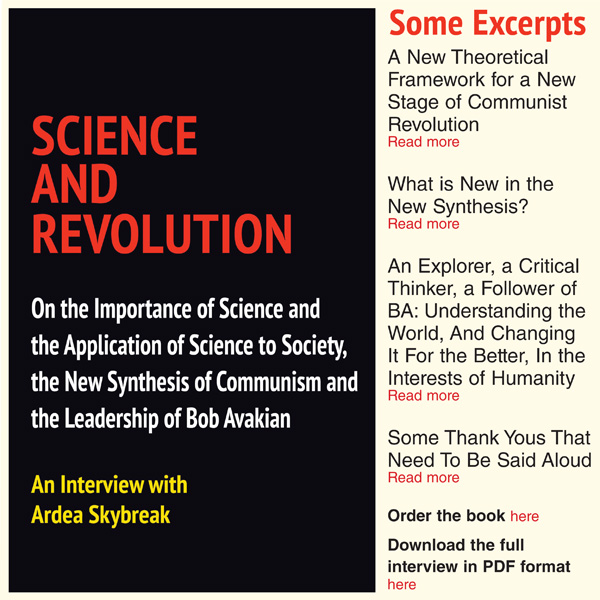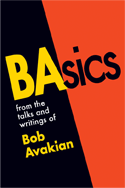“Professor Watchlist”—
Targeting Critical Thinking and Dissent in the Universities
January 28, 2017 | Revolution Newspaper | revcom.us
A dangerous movement on the campuses across the country jumped out right after the election—the “Professor Watchlist”—which has begun identifying professors whose scholarship, curricula, and role as public intellectuals are seen by its organizers as un-American and unacceptable. While this kind of attack on academia is not new, it is now taking place in an atmosphere and against the backdrop of the rise to power of a fascist regime, and with clear support from its highest levels.
This witch hunt began by publicizing the names of 195 professors, along with photographs, and descriptions of the “crimes” which earned them a place on the “enemies” list. Who is being targeted? The stated objective of the Professor Watchlist is to “expose and document college professors who discriminate against conservative students, promote anti-American values and advance leftist propaganda in the classroom.” And the organizers are calling on students to report any professors they believe belong on the list.
What Can Get You on the Professor Watchlist?
Here are just a few of the activities that can put you on the list to be watched:
- Because you are a Black professor who traveled to Ferguson, Missouri, multiple times to protest the non-indictment of the white police officer who shot Michael Brown. And because you have been a signatory on a letter supporting the demands from the Coalition of Concerned Students for a new multi-cultural center, more support for “underrepresented groups,” and increasing the number of minority faculty members;
- Because you are one of the professors who has led the fight at your law school against renaming the school after Justice Antonin Scalia. And because you said that Scalia was racist and homophobic;
- Because, as part of a discussion on climate change, you required students to write about climate-change skeptics, citing the “mythical 97% number” (of scientists who agree that global warming is man-made) and to ask questions such as “What is their motivation?” and “Who funds their efforts?”;
- Because you have your students discuss and explore the concepts of “white privilege” or “male privilege” in your class.
Fascists Target the University as Dangerous Source of Evidence-Based Thinking
The Professor Watchlist is organized by Turning Point USA, a reactionary student group started in 2012, which is funded by very rich right-wing donors, including the governor of Illinois, and claims to have chapters on more than 1,000 campuses. Their founder, Charlie Kirk—in his early 20s—was invited to speak at the Republican National Convention in Cleveland that anointed Trump as their candidate. And he has met with the Trump-Pence transition team—because he is considered capable of mobilizing millennials into a reactionary student movement that will transform the atmosphere on the campuses.
This development must be taken extremely seriously. Trump fully intends to enforce his America First program, and bring the force of the state against any sectors of society that seriously oppose him. These fascists understand that the universities are one institution in society that can stand in the way of the fundamental reordering of society that their America First program requires. The Trump administration, which brazenly promotes notions of “alternative facts,” sees the university as a dangerous source of evidence-based thinking. As Raymond Lotta has pointed out: “The university is a place where dissent and critical and radical thinking have some initiative. It is a space that has helped incubate social movements—from civil rights to antiwar, women’s and environmental.”
While the watchlist is going after a range of professors, the Trump administration, which dismisses the scientific consensus on human-made climate change, has been putting a particular target on the backs of climate scientists. It is attempting to shut down NASA’s climate-change research and monitoring and vetting the research of NASA and other government agency employees. As Michael Mann, a professor of atmospheric science at Penn State, wrote in a recent Washington Post op-ed: “We know that we could be hauled before Congress to face hostile questioning.... We know we could be at the receiving end of federal subpoenas demanding our personal emails. We know we could see our research grants audited or revoked.” Mann also recounts email and phone threats of violence against him.
There is precedent for this kind of witch hunt with the nationwide campaign launched by David Horowitz against critical thinking and dissent in academia a decade ago, and the publication of his 2006 book The Professors: The 101 Most Dangerous Academics in America. This went hand-in-hand with the Ward Churchill case—an overtly politically motivated attack by the University of Colorado which fired Churchill, a tenured professor and chair of Native American Studies, for an essay he wrote after 9/11. The firing of a tenured professor for the content of an essay criticizing the government seriously chilled the atmosphere among faculty on campuses everywhere.
There is already growing concern among those who have appeared on the list, and more broadly, about where and how far this can go, way beyond anything accomplished in the campaign by Horowitz and his allies in the Bush administration. People are recognizing the connection between the Professor Watchlist and Trump’s assumption to power. A journalism professor at Columbia University whose name was added to the list expressed his fears: “We have a list, we know who you are – then suddenly you’re marking people as targets. We look at history, we saw it happen in Italy, in Germany with this kind of thing, we saw it with McCarthy ... that’s my fear, that these buffoons are taken seriously.”
Retired professor Ellen Schrecker, author of No Ivory Tower: McCarthyism and the Universities—about a period in the U.S. in the 1950s when thousands in academic and cultural and political life were subjected to investigation, blacklisting, and dismissal from positions (also known as the “Red Scare”)—was interviewed about the Professor Watchlist by the Boston NPR station WBUR in December 2016. Comparing the watchlist to the McCarthy period, Schrecker said she wasn’t sure whether people would lose their jobs; and then added, “One just hopes that the academic community doesn’t fold. It did fold in the 1950s.” After describing the treatment of three university professors who were targeted by McCarthy, then fired from the university, with one being sent to prison, Schrecker said: “What made the Red Scare’s effect insidious was that it produced not resistance, but silence.”
Beginning Opposition—and the Need for Broader Determined Resistance
There has been a positive response by many of the faculty appearing on the watchlist—both taking it very seriously and refusing to be intimidated. And colleagues and others have stepped forward in support. In response to the appearance of the names of colleagues at the University of Notre Dame on the watchlist, more than 100 professors on the campus sent a powerful statement to Professor Watchlist, which said in part:
We will not tolerate our colleagues being subject to policing of their work, their thoughts and their teaching. We will not repeat the passivity of the past, when intellectuals were blacklisted for disagreeing with a particular agenda. When you challenge them, you challenge us.
As of January 8, more than 2,250 professors from campuses in this country and beyond have signed the statement, telling the watchlist that they want their names added as well.
But there needs to be much more awareness within the academic community, and in society as a whole, of the significance of where this whole assault on dissent and critical thinking is coming from, and the larger picture that fits into. In 2007, in a special supplement titled “WARNING: The Nazification of the American University,” we wrote about the offensive on critical thinking and dissent in academia at that time, surrounding the attack on Ward Churchill. The following from that special supplement is critical to understanding the urgency of taking these attacks seriously; at this moment when critical thinking and dissent must be fostered, not muzzled or silenced:
Bob Avakian, in analyzing the core objectives behind this organized attack on academia, has emphasized that today’s imperialist agenda cannot stand up to critical thinking and a rational pursuit of the truth. And so those behind this agenda have to change the definition of what is the truth and how the truth is arrived at. And they have to rule out of order and beyond the pale critical thinking and dissent that would call into question not only the justification of particular policies, but also the foundation on which those justifications are built. (We encourage readers to listen to BA’s talk “Balance” Is the Wrong Criterion—And a Cover for a Witch-hunt—What We Need Is the Search for the Truth: Education, Real Academic Freedom, Critical Thinking and Dissent,” one of his 7 Talks.)
Students, faculty, and administrations on the campuses must stand up to this witch hunt by mobilizing and organizing to meet this menace. And broader segments of society must join with them. We must defend those who have been singled out for attack and, more fundamentally, defend the ability of professors and students to hold—and propagate—dissenting and radical views.
At this moment, with the rise of this American fascist Trump regime, it is vitally important that the new generation of students and professors oppose Trump’s campus goons, and step forward to defend the unfettered search for the truth, intellectual ferment, and dissent. One way or another, this struggle over the university and intellectual life will have profound repercussions on the struggle to refuse fascism—and on the prospects for bringing a whole new society into being.
Volunteers Needed... for revcom.us and Revolution
If you like this article, subscribe, donate to and sustain Revolution newspaper.


 Bob Avakian:
Bob Avakian:

